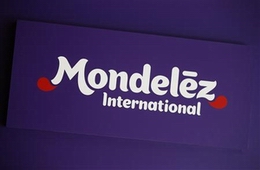 Citing sources familiar with the matter, Britain's Daily Telegraph reported that Peltz had spent $2 billion on shares of the companies through his investment vehicle, Trian Fund Management. The paper speculated that Peltz could then push for a merger of the two companies.
Citing sources familiar with the matter, Britain's Daily Telegraph reported that Peltz had spent $2 billion on shares of the companies through his investment vehicle, Trian Fund Management. The paper speculated that Peltz could then push for a merger of the two companies.The often speculated-upon marriage between PepsiCo and Mondelez would bring together salty snacks like Doritos and Tostitos with sweets like Cadbury chocolate and Oreo cookies. The resulting behemoth would have more than $100 billion in revenue and $20 billion of operating earnings per year.
A deal would also reunite Mondelez Chief Executive Irene Rosenfeld with Frito-Lay, which she ran for two years before taking the reins at Kraft in 2006.
A spokeswoman for Trian declined to comment on the report. Spokesmen for PepsiCo and Mondelez declined to comment on "rumor or speculation" regarding any Trian stake, though both indicated the companies were happy with where they were now.
"We're satisfied with the portfolio where it stands today," said a Mondelez spokesman.
"We are making strong progress in our strategy to deliver long-term growth and create shareholder value," said a PepsiCo spokesman. "We do not see the need for any large scale M&A."
Mondelez shares rose $1.17, or 4 percent, to $29.73 on the Nasdaq, while PepsiCo shares rose $2.49, or 3.3 percent, to $78.64 on the New York Stock Exchange.
Through Thursday's close, PepsiCo shares have increased 11 percent this year, following a transition year in 2012 that saw it reinvest heavily in its brands. The company is under less pressure than it was a year ago when shares were stagnant, but at least one shareholder welcomed the news.
"Anything that creates some urgency among PepsiCo's top management to maximize per share value is a very good thing," said Robert Sanborn, whose Chicago-based hedge fund Sanborn Kilcollin Partners owned roughly 220,000 PepsiCo shares at the end of 2012.
ON GUARD
Nelson Peltz is no stranger to the food industry, or to PepsiCo and Mondelez in particular.
"Mr. Peltz's influence, for example, was a major reason for the spinoff of Dr Pepper Snapple Group (DPS.N) from Cadbury, Kraft's purchase of Cadbury and Kraft's breakup into Kraft Foods Group (KRFT.O) and Mondelez," said Stifel Nicolaus analyst Christopher Growe.
Peltz is also a shareholder and board member of H.J. Heinz (HNZ.N), which just agreed to be bought by 3G Capital and Berkshire Hathaway (BRKa.N). He has also been active at Wendy's (WEN.O) and Family Dollar Inc (FDO.N).
"Both of those sides should worry because he's a force," said an industry executive who did not want to be identified discussing Peltz. "We've already seen it before."
Consumer Edge Research analyst Bill Pecoriello said last month before PepsiCo's fourth-quarter earnings report that the odds of a "significant transformational transaction" over the next one to three years was high.
A potential transformation could include the separation of PepsiCo's drink business and the acquisition of more attractive food businesses, Pecoriello said.
"We see Mondelez as representative of the attributes that would enhance Pepsi's portfolio with Danone (DANO.PA) a much lower probability given the French government's protectionist policy," Pecoriello wrote. General Mills Inc (GIS.N) was less attractive, he said.
Trian reported a stake in PepsiCo in late 2011, a time when there was a lot of market speculation over whether the maker of Tropicana juice, Frito-Lay snacks and Quaker oatmeal was worth more broken up or together. Its share price had been stagnant for about five years and its North American drink business was losing share to that of Coca-Cola (KO.N).
He later sold off the stake. Trian did not report a stake in either company at the end of 2012.





